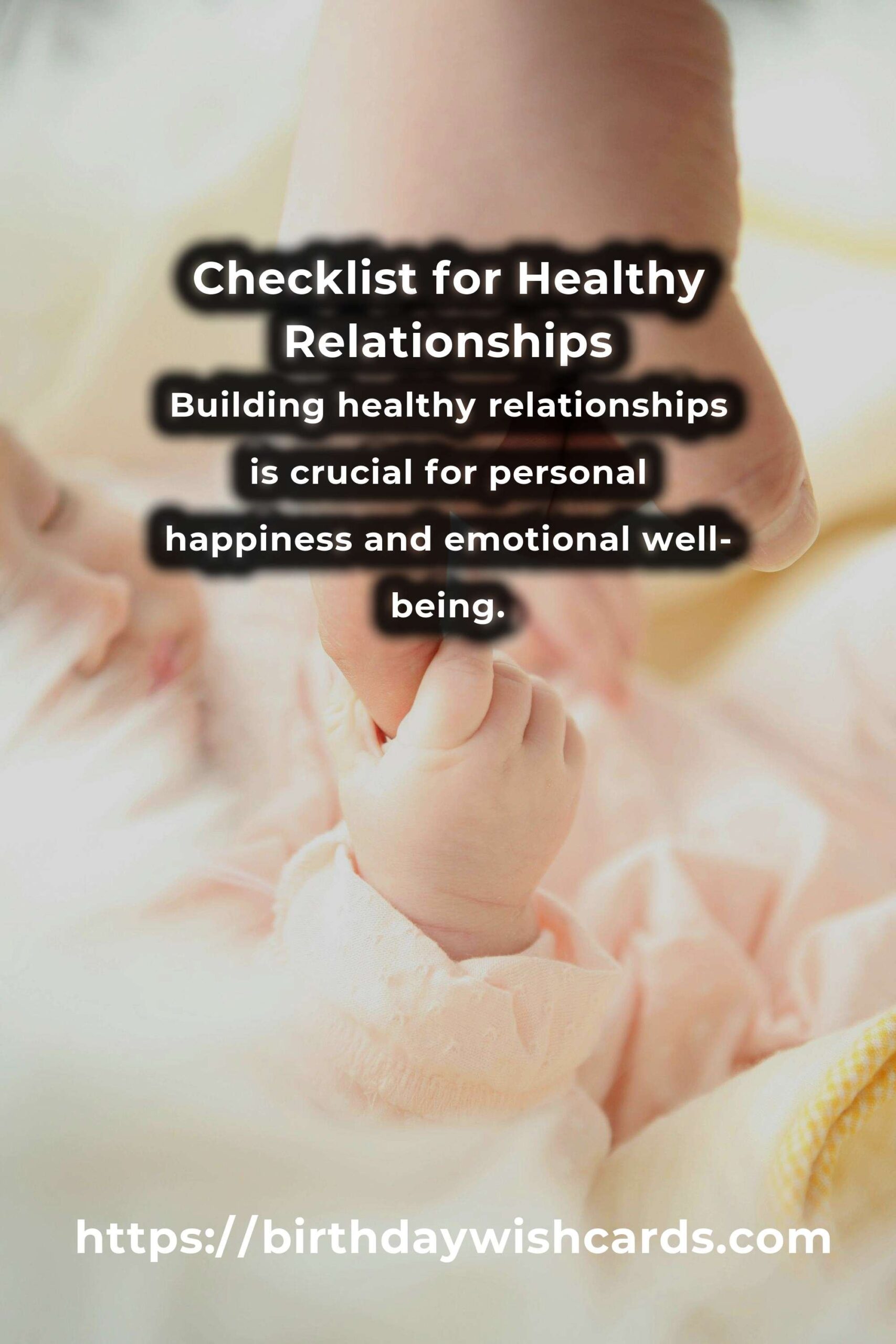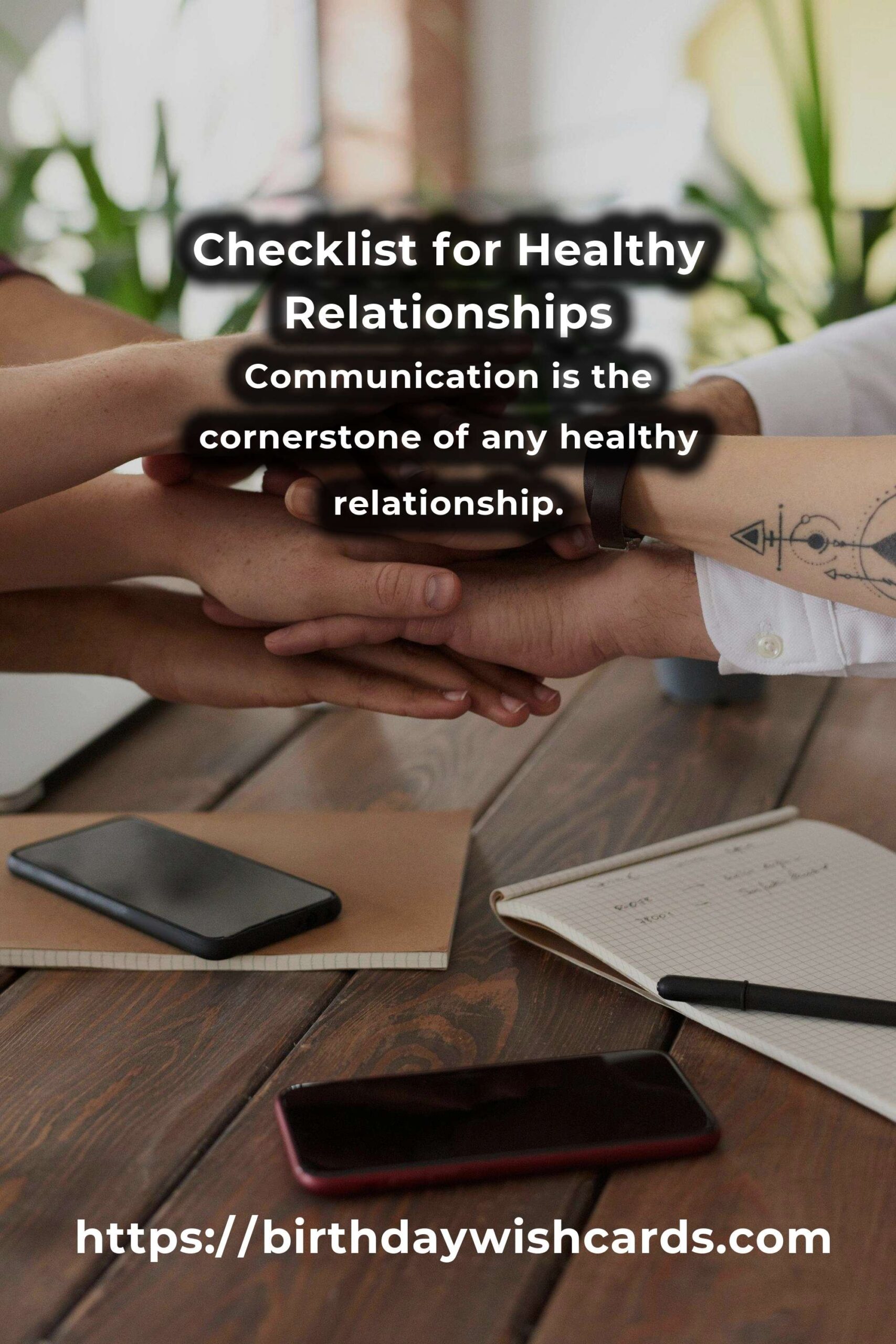
Building healthy relationships is crucial for personal happiness and emotional well-being. Whether it’s with a partner, family member, friend, or colleague, the quality of your relationships can significantly impact your life. Understanding and implementing effective strategies can lead to more fulfilling and harmonious connections.
1. Communication
Communication is the cornerstone of any healthy relationship. It involves not only expressing your thoughts and feelings but also actively listening to your partner. Open, honest, and respectful communication can prevent misunderstandings and build trust.
Effective communication means being able to express both positive and negative feelings. It involves understanding non-verbal cues and being sensitive to the other person’s needs and emotions. Practicing empathy and being open to feedback are also critical components.
2. Trust
Trust is fundamental to a healthy relationship. It serves as the foundation upon which all other aspects are built. Trust involves reliability, integrity, and the belief that you can depend on each other.
Building trust takes time and requires consistency. Keeping promises, being honest, and showing vulnerability can foster a strong sense of trust. It is essential to address any breaches of trust immediately to prevent long-term damage.
3. Respect
Mutual respect is vital in any relationship. It means valuing each other’s opinions, boundaries, and individuality. Respecting differences and accepting each other as you are can strengthen your bond.
Respect also involves supporting each other’s goals and dreams. It means acknowledging your partner’s strengths and achievements, and offering encouragement and support.
4. Quality Time
Spending quality time together is crucial for maintaining a healthy relationship. It allows you to connect, share experiences, and create lasting memories. Quality time doesn’t necessarily mean large amounts of time; it’s about being present and engaged with one another.
Whether it’s cooking dinner together, going for a walk, or simply having a conversation, make time to focus on each other. Regularly scheduled time together can help keep your relationship a priority.
5. Conflict Resolution
Every relationship will encounter conflict at some point. The key is to handle disagreements constructively. Effective conflict resolution involves staying calm, listening to each other’s perspectives, and finding a compromise.
Approach conflicts with a problem-solving attitude rather than a confrontational one. This involves respecting each other’s viewpoints and working together towards a solution that satisfies both parties.
6. Support
Providing support is a crucial component of a healthy relationship. This means being there for each other during difficult times and celebrating successes together.
Emotional support can take many forms, from listening and offering advice to simply being present. It’s important to understand what type of support your partner needs and providing it in a way that is meaningful to them.
7. Independence
While being part of a relationship, it’s important to maintain your own identity and independence. This involves pursuing your interests, goals, and friendships outside of the relationship.
Encouraging each other’s independence can actually strengthen your relationship. It allows both partners to grow individually, bringing more fulfillment and excitement to the relationship.
8. Appreciation
Showing appreciation and gratitude regularly can significantly enhance your relationship. It involves acknowledging your partner’s efforts and expressing thanks for the small and big things they do.
Simple gestures like saying ‘thank you’ or leaving a note can go a long way in making your partner feel valued and loved.
Conclusion
Healthy relationships require effort, commitment, and a willingness to grow together. By focusing on communication, trust, respect, quality time, conflict resolution, support, independence, and appreciation, you can build strong and meaningful connections. Implementing these strategies will not only improve your relationships but also contribute to your overall happiness and well-being.
Building healthy relationships is crucial for personal happiness and emotional well-being. Communication is the cornerstone of any healthy relationship. Trust is fundamental to a healthy relationship. Mutual respect is vital in any relationship. Spending quality time together is crucial for maintaining a healthy relationship. Every relationship will encounter conflict at some point. Providing support is a crucial component of a healthy relationship. While being part of a relationship, it’s important to maintain your own identity and independence. Showing appreciation and gratitude regularly can significantly enhance your relationship.
#HealthyRelationships #RelationshipAdvice #Communication #Trust #Respect #QualityTime #ConflictResolution #Support #Independence #Appreciation

